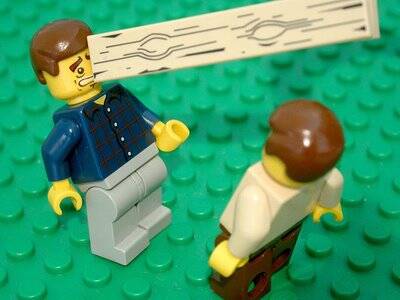Cambridge, MA. In his address to the European Parliament and to the Council of Europe on Tuesday, Pope Francis put an amazingly open and inclusive vision before his audience, of openness, dialogue, and inclusion. I need not review the entire document, since Gerard O’Connell has already done this very well, in these very pages.
My addition is to suggest that Francis is speaking a double-edged word, challenging not just secular leaders but also the Church, particularly its leaders. He is asking Europe to get out of its rut, and in doing so, he is also putting his – our – Catholic credibility on the line, for he knows that he can hardly challenge Europe to ideals that are not practiced in the Church itself. Is not the Roman Church itself always in danger of being the quintessence of the old West, overly centralized and afraid of new ideas and new modes of conversation? Consider just a few passages from his speech; by way of experiment, read his words as applying also to the Church. First, dialogue is not a short-term strategy that at a certain point is over and done with:
The royal road to peace… is to see others not as enemies to be opposed but as brothers and sisters to be embraced. This entails an ongoing process which may never be considered fully completed.
The fear that leads to marginalizing inconvenient voices seems to work in the short run, but is no way to a healthy, integral community:
Achieving the good of peace first calls for educating to peace, banishing a culture of conflict aimed at fear of others, marginalizing those who think or live differently than ourselves.
Dialogue does not work, if it is so tightly controlled that most people are left out of it:
The history of Europe might lead us to think somewhat naïvely of the continent as bipolar, or at most tripolar (as in the ancient conception of Rome-Byzantium-Moscow), and thus to interpret the present and to look to the future on the basis of this schema, which is a simplification born of pretentions to power. But this is not the case today, and we can legitimately speak of a “multipolar” Europe. Its tensions – whether constructive or divisive – are situated between multiple cultural, religious and political poles. Europe today confronts the challenge of “globalizing”, but in a creative way, this multipolarity. Nor are cultures necessarily identified with individual countries: some countries have a variety of cultures and some cultures are expressed in a variety of countries. The same holds true for political, religious, and social aggregations.
The pretensions of power, exercised for the sake of preserving an over-centralized center, stifle creativity and impoverish the community:
Creatively globalizing multipolarity, and I wish to stress this creativity, calls for striving to create a constructive harmony, one free of those pretensions to power which, while appearing from a pragmatic standpoint to make things easier, end up destroying the cultural and religious distinctiveness of peoples.
Instead, multipolarity is the way forward:
The task of globalizing Europe’s multipolarity cannot be conceived by appealing to the image of a sphere – in which all is equal and ordered, but proves reductive inasmuch as every point is equidistant from the centre – but rather, by the image of a polyhedron, in which the harmonic unity of the whole preserves the particularity of each of the parts. Today Europe is multipolar in its relationships and its intentions; it is impossible to imagine or to build Europe without fully taking into account this multipolar reality.
An organization that is top-heavy with elderly rulers who talk primarily to themselves must give way to a new dynamic that welcomes the "new music:"
In my meetings with political leaders from various European countries, I have observed that the younger politicians view reality differently than their older colleagues. They may appear to be saying the same things, but their approach is different. The lyrics are the same but the music is different.
True listening is essential, not merely a strategy to be picked up when needed and thereafter dropped, since renewal "requires engaging in dialogue, including intergenerational dialogue:"
Were we to define the continent today, we should speak of a Europe in dialogue, one which puts a transversality of opinions and reflections at the service of a harmonious union of peoples. A Europe which can only dialogue with limited groups stops halfway; it needs that youthful spirit which can rise to the challenge of transversality…
The universal must be also the transversal, and this opens up into a deeply religious, interreligious, dialogue:
In light of all this, I am gratified by the desire of the Council of Europe to invest in intercultural dialogue, including its religious dimension, through the Exchange on the Religious Dimension of Intercultural Dialogue.
I could go on, but I think you see the point. These virtues need to be practiced in the Church, if it is not merely to grow old and tired, stifled by the same lethargy and decline weighing down the old Europe.
None of this requires or allows us to abandon fundamental Christian virtues — truth, justice, peace, following Christ. It is rather to say that unless these virtues are allowed to breath, in a spirit of openness, where the marginalized in the Church are given their rightful place and a share in power, the Church will still fail to allow the Spirit to breathe within it. And so, Pope Francis, dear brother, can we practice what we preach?







